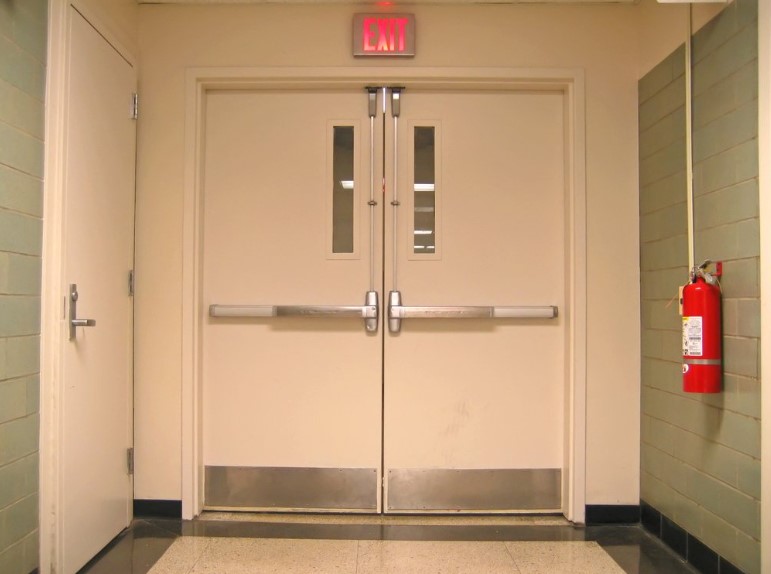
Fire doors are everywhere. You have probably come in contact with them at work, in public buildings, or home. They are specialist doors tested against the elements. These doors are specifically built to withstand fires for a long time. They make it possible for buildings to delay the spread of fire and can be part of your passive fire protection strategy. Here are a few essential things to know about fire doors.
1. What do they do?
The biggest benefit of fire doors is that they compartmentalize a building. The door keeps smoke and fire in if a room is on fire. Fire doors slow down the spread of fire, giving you time to get it under control.
The doors can also keep your escape routes clear of the fire, making it possible to escape. They give the fire service better access.
2. How long do fire doors last?
Fire doors and frames are designed to hold fire back for 30 minutes. The ability of these doors to withstand fires depends on the installation technique and fire-rated hardware.
The condition of the door could deteriorate over time, especially if it is used regularly. Regular maintenance could improve its lifespan.
3. Can you paint fire doors?
Although fire doors have to be fitted with fire-rated locks, hinges, and hardware, you can use regular paint on them. Regular varnish or decorative paint can improve the appeal of your fire door. It doesn’t damage their performance. However, you should avoid chemical strippers and heat, especially if the intumescent seals are in place. Do not paint over any seals, hinges, or hardware.
4. Can you leave fire doors open?
It is okay to leave fire doors open only if you do so legally. This includes a hold-open free-swing door closer or a fire door retainer. Do not wedge or prop your fire door open. Instead, use the self-closing devices fitted on the doors if a fire breaks out.
5. Are you legally required to have a fire door?
Fire doors are legally required in non-domestic properties. These include public buildings, businesses, and commercial premises. They are also a legal requirement in houses of multiple occupancy.
The Regulatory Reform (Fire Safety) Order 2005 demands that operators in Wales and England must appoint a ‘Responsible Person’ to oversee fire safety precautions. One of their primary responsibilities is reducing the risk of fires spreading in the premises. Fire doors are critical for this.
6. Who should fit fire doors?
If you need to fit a fire door, seek professional help like those at Capital Fire Doors. The effectiveness of your door depends on the installation. Ensure that whoever fits your fire door has the appropriate training. A badly fitted fire door will only last for a short time, regardless of its rating. It could go down in just five minutes.
7. How often should your fire door be checked?
Fire doors are crucial and need to be checked regularly. You must schedule regular maintenance with a professional to keep your door in good condition. The frequency of inspections depends on the condition and age of your door. However, it would be best to have it checked every six months. You may need to schedule checks more frequently if your building is newly occupied.
Fire doors have become essential in non-residential buildings. Their safety features can be the difference between life and death. Proper installation and routine maintenance can keep your building safe for a long time.
